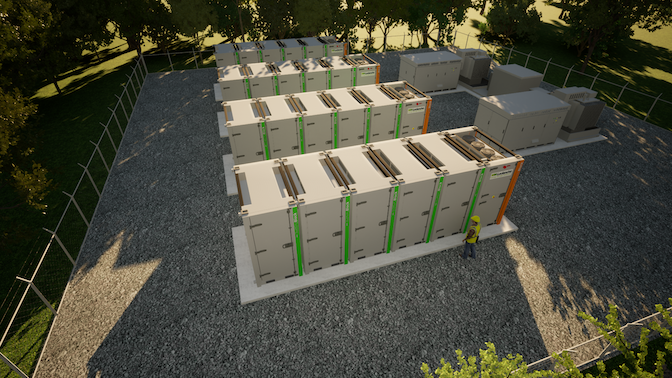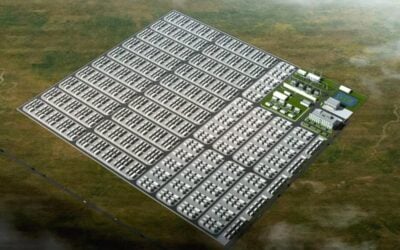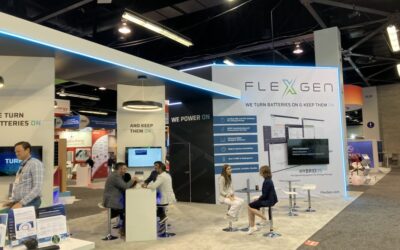
Leclanché will provide an 11.9MWh battery energy storage system (BESS) for deployment at a utility-scale solar PV power plant near Kaiserslauten, Germany.
The Switzerland-headquartered energy storage solutions company will deliver a full turnkey lithium-ion BESS, based on the LeBlock modular technology platform it launched to the global market in 2021.
Enjoy 12 months of exclusive analysis
- Regular insight and analysis of the industry’s biggest developments
- In-depth interviews with the industry’s leading figures
- Annual digital subscription to the PV Tech Power journal
- Discounts on Solar Media’s portfolio of events, in-person and virtual
German energy optimisation company Olmatic chose Leclanché’s BESS for the project, which will perform frequency regulation services through the primary control reserve (PCR) market. PCR is a Europe-wide service, but is procured and delivered locally.
Olmatic works with power plant operators to find the best ways to maximise the value of their assets. In the case of the 5.6MW Sembach PV plant which has been in operation since 2006, the municipal utility which owns it can add the battery storage to get revenues from helping balance the grid.
Software-as-a-service (SaaS) provider FlexPowerHub, also a German company, is automating the BESS’ participation in the ancillary service market, using artificial intelligence (AI) forecasting of local power demand and production.
By prompting the system to automatically kick in to send power to the grid when grid frequency drops — either due to lower renewable energy production or higher electricity demand — the power plant owner is not required to have specialist knowledge of the market or the battery technology to be involved.
FlexPowerHub COO and partner Martin Simmerstatter said the company wanted to make entry into the energy balancing market — which he described as “very complex” — easier for renewable energy plants and their owners and operators.
“By automating the entire process, energy industry know-how is no longer necessary – this lowers the barrier to market entry enormously. In combination with an innovative storage system from Leclanché, revenues can be generated on the negative as well as on the positive energy balancing market. In addition, we optimise revenues through DeepLearning forecasts and thus reduce the amortisation period of a battery storage system,” Simmerstatter said.
First German installation for LeBlock
Leclanché launched LeBlock in May 2021. The company claimed at the time that its design, which comprises separate BatteryBlock units that can be stacked together makes it plug and play, suitable for assembly on site, as well as easy to transport.
The company told Energy-Storage.news at the time of its launch that it was motivated by the growing market demand for larger, higher voltage and higher rated capacity battery storage systems.
The BatteryBlocks are 5ft wide and come pre-installed and configured, with four blocks able to fit into the footprint of a 20ft ISO standard container. It meets the various necessary fire safety and transportation standards, Leclanché said.
BatteryBlocks each have water-cooled battery racks neatly fitted together with Leclanché’s CombiBlocks, units which include the central cooling systems for thermal management. At the launch, the company said in the standard configuration each of the BESS blocks fits up to 745kWh of lithium iron phosphate (LFP) batteries, although it can be integrated with different battery types too.
At the Sembach PV plant, Leclanché will deliver 16 BatteryBlocks, four CombiBlocks and a 8.78MVA power conversion system (PCS) system for connection to the local 20kV/50Hz grid.
“Energy storage systems are taking on an important role in the energy market with regard to the further expansion of renewable energy sources, security of supply and grid stability,” Leclanché CEO Anil Srivastava said, adding references to other European projects the company is providing LeBlock systems to in Germany and the Netherlands.






